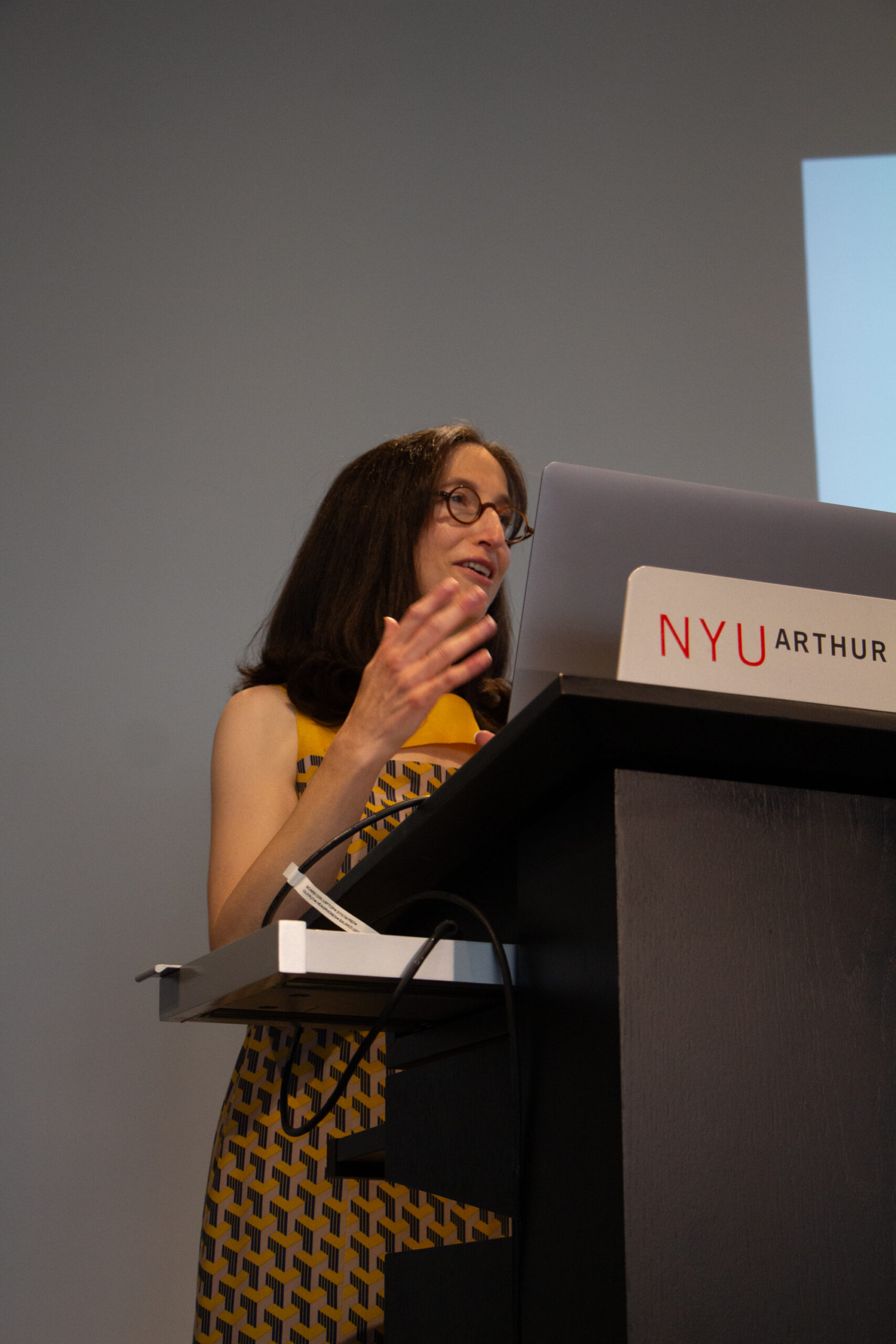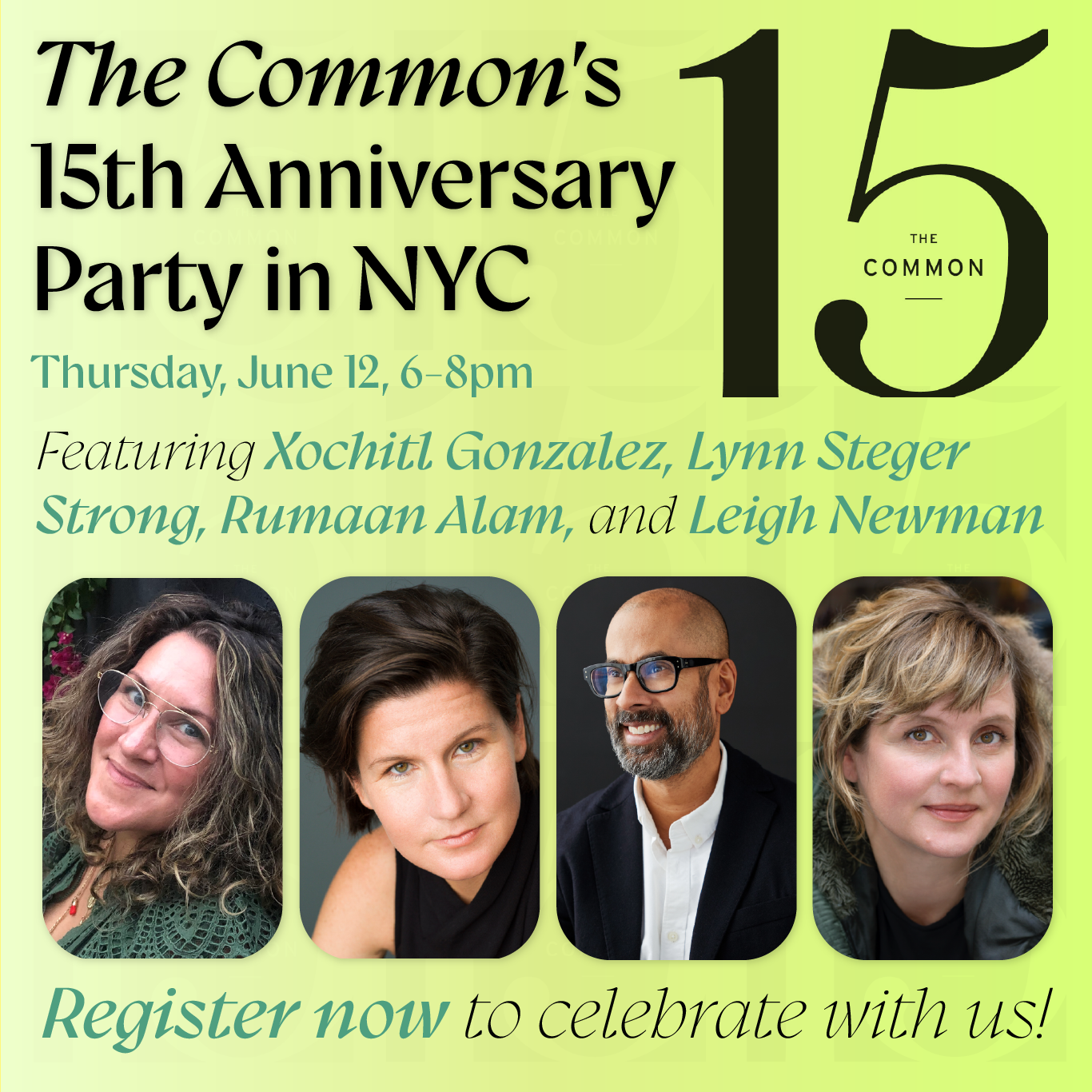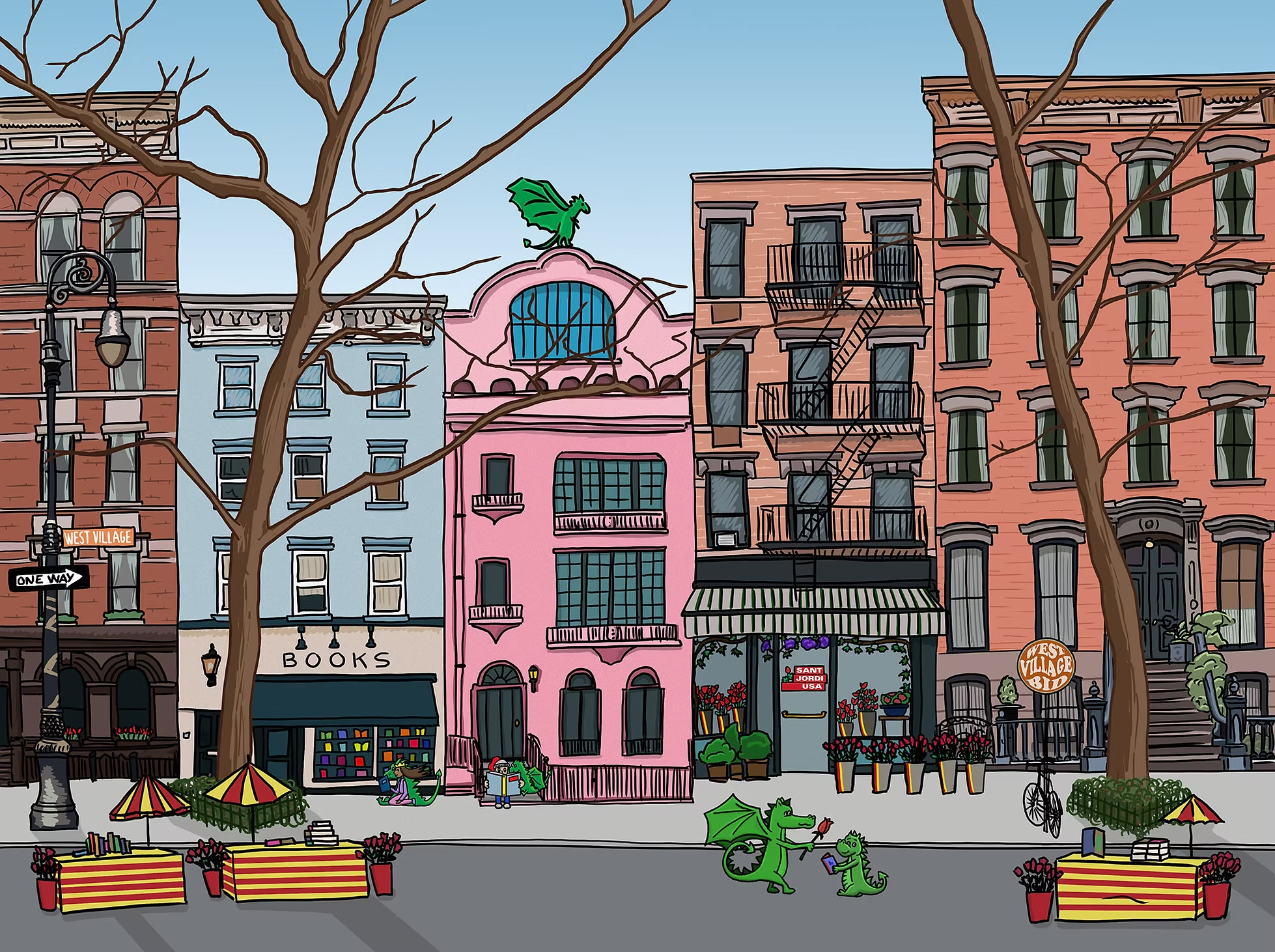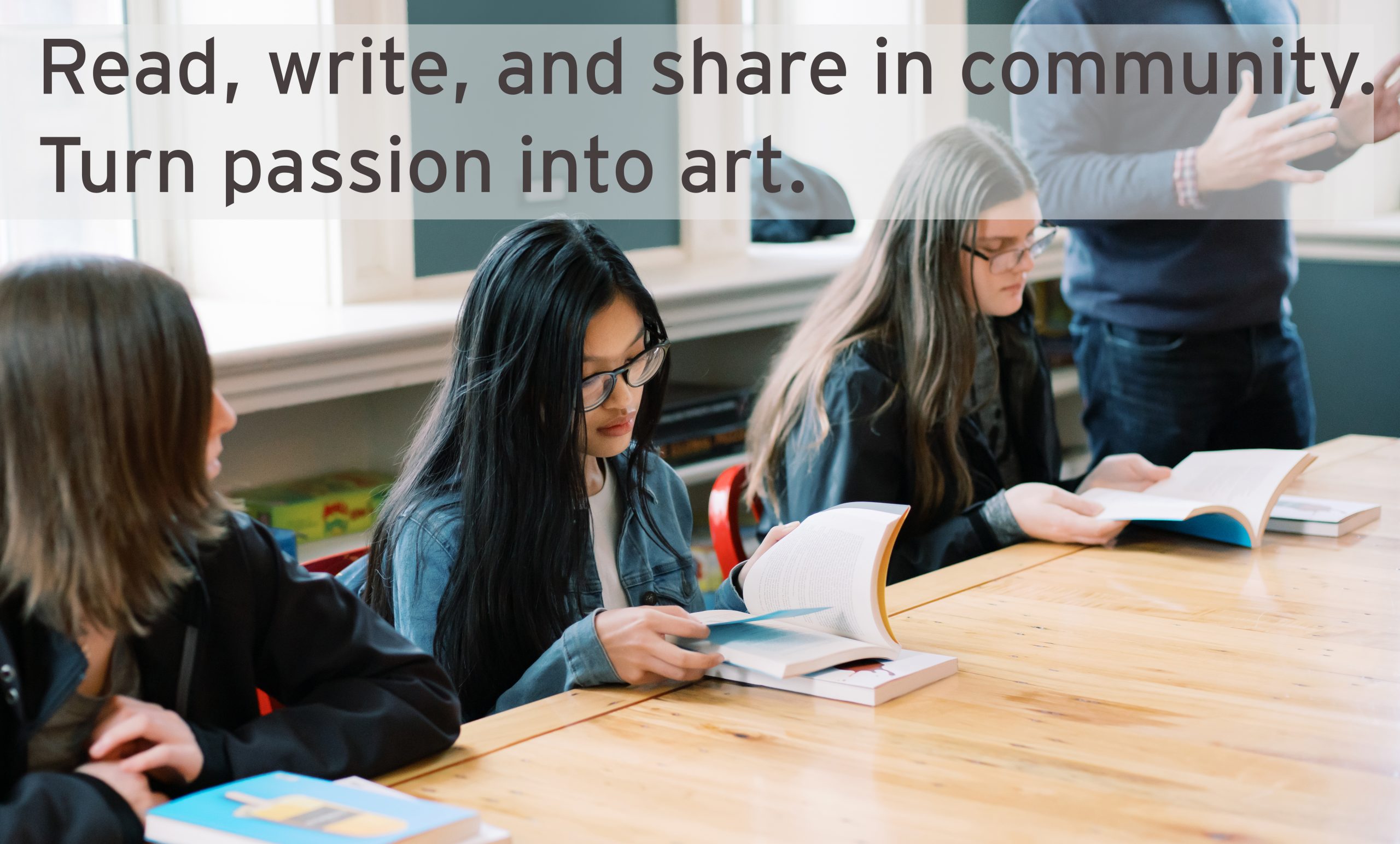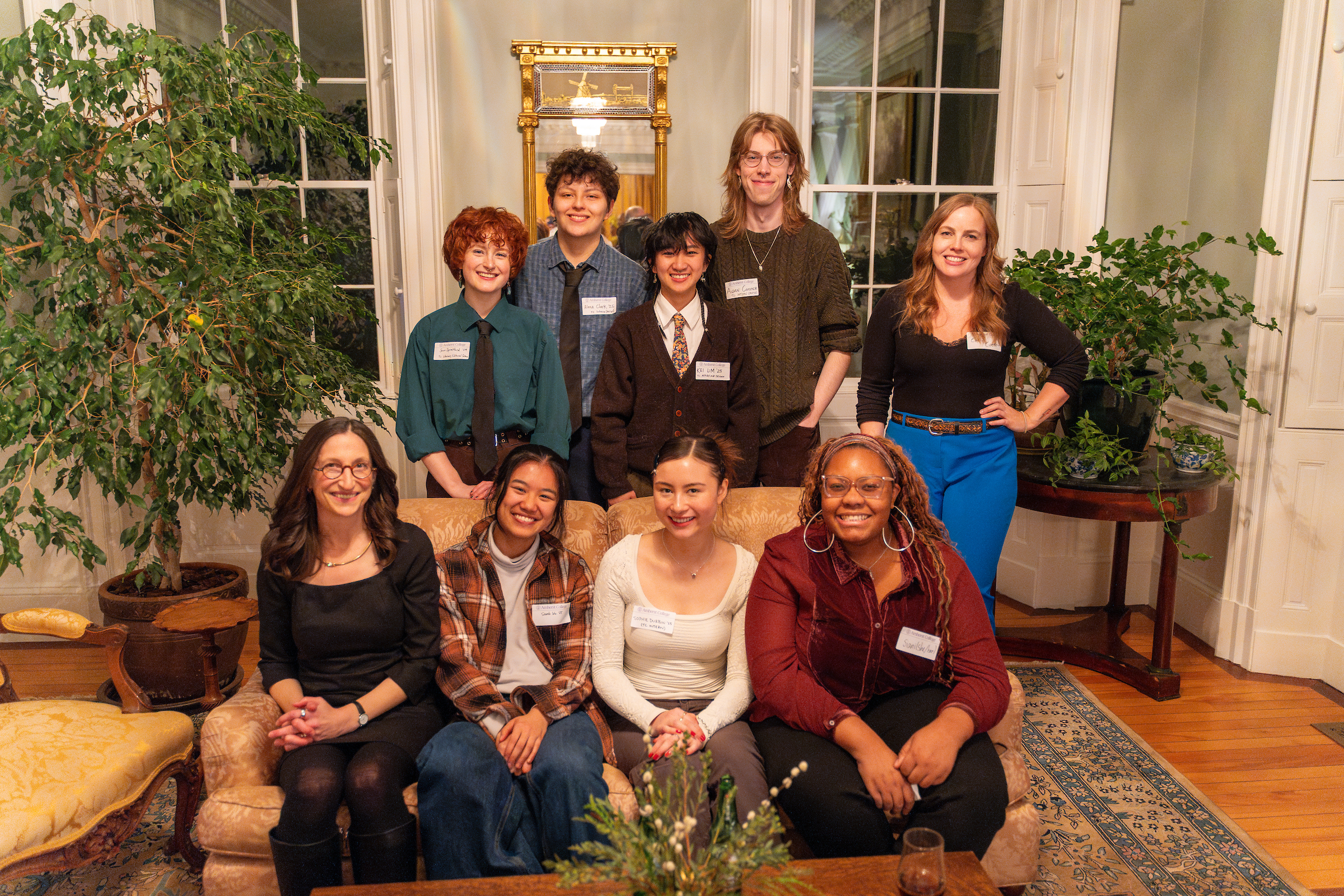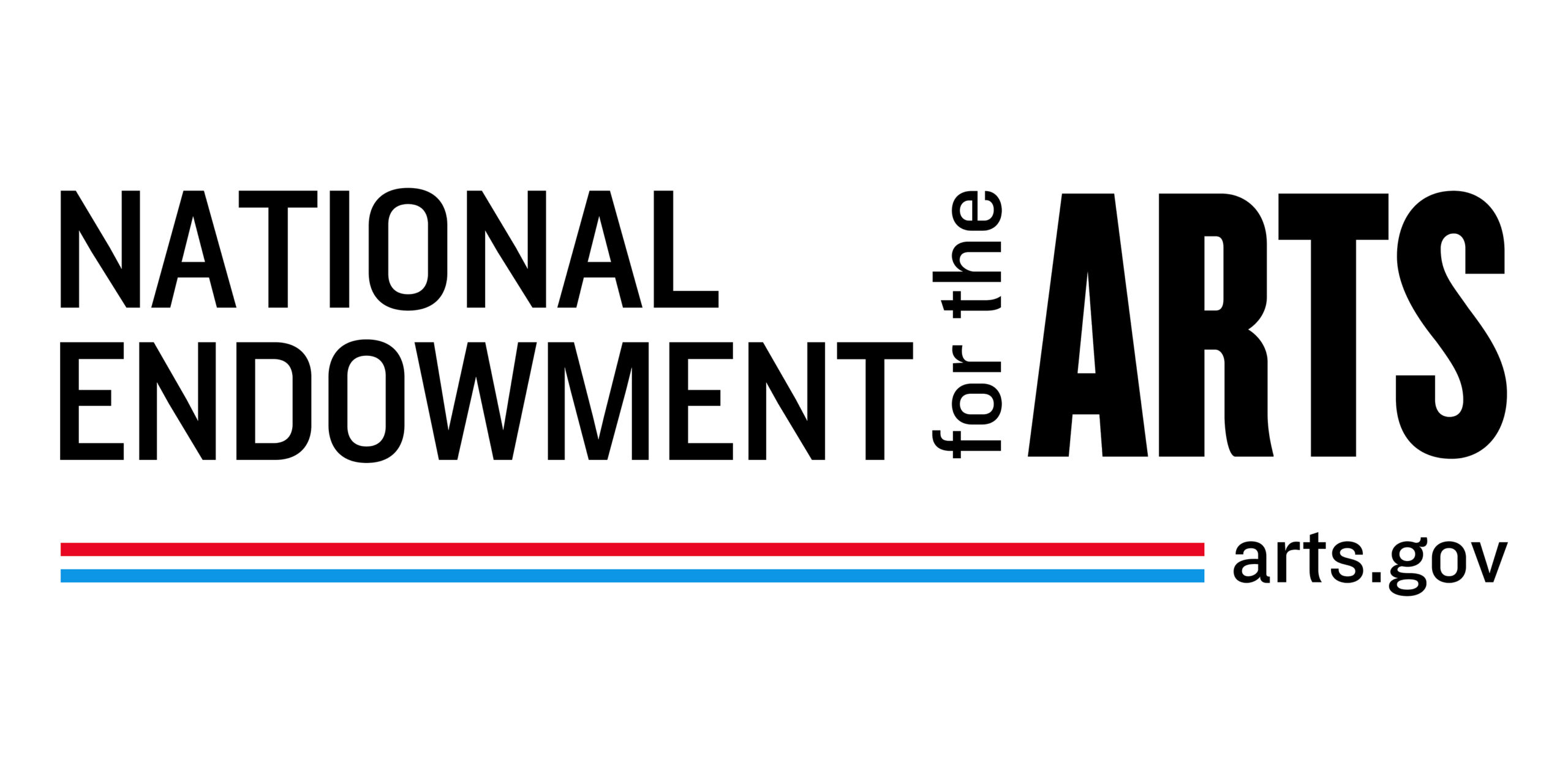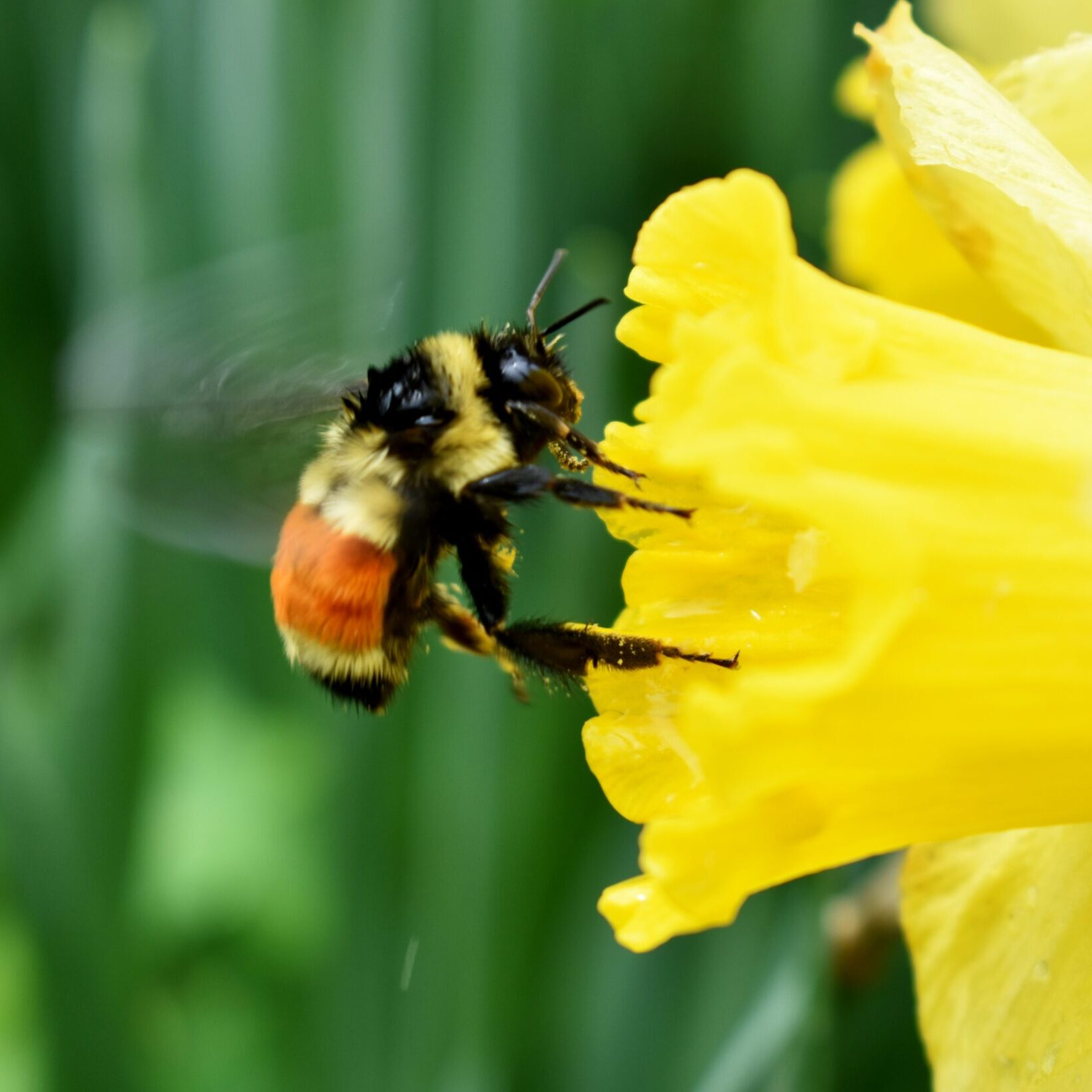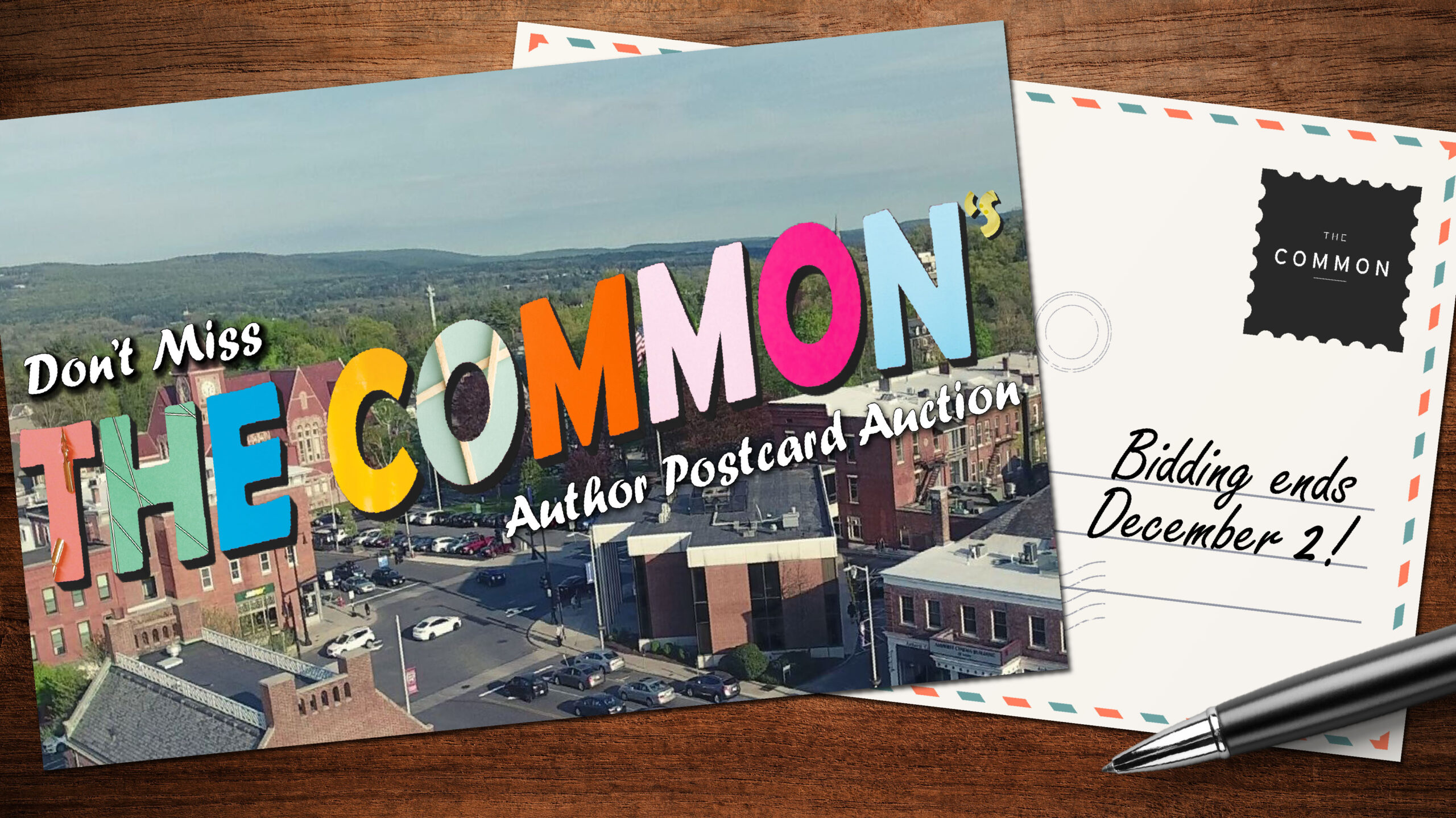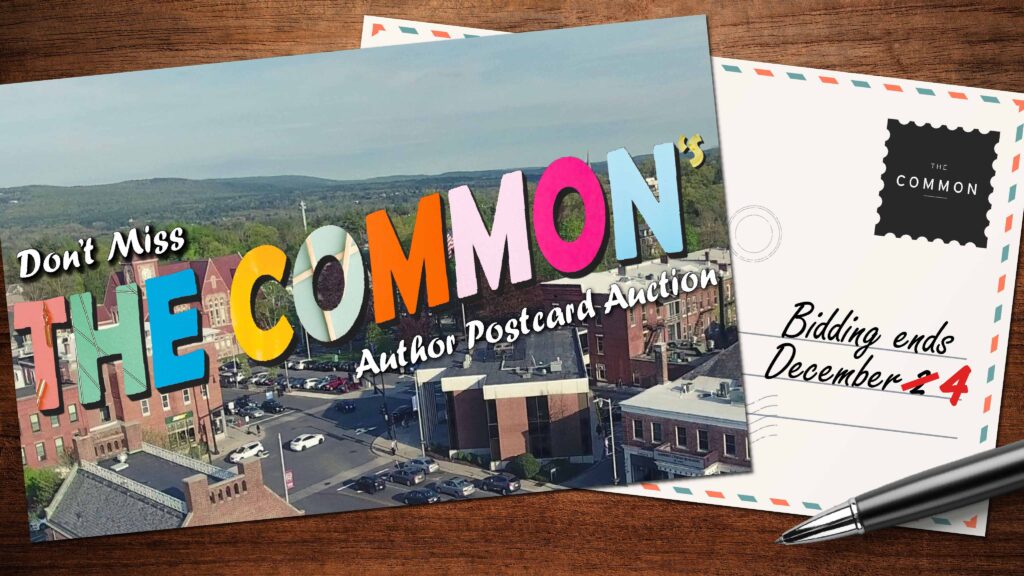Before we close out another busy year of publishing, we wanted to take a moment to reflect on the unique, resonant, and transporting pieces that made 2024 memorable. The Common published over 175 stories, essays, poems, interviews, and features online and in print in 2024. Below, you can browse a list of the ten most-read pieces of 2024 to get a taste of what left an impact on readers.
*
January 2024 Poetry Feature: Part I, with work by Adrienne Su, Eleanor Stanford, Kwame Opoku-Duku, and William Fargason
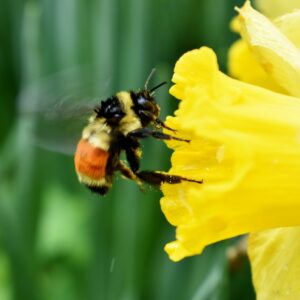
“I wrote this poem on Holy Saturday, which historically is the day after Jesus was crucified, and the day before he was resurrected. That Spring, I was barely out of a nervous breakdown in which I had intense suicidal ideation … The moments of quiet during a time like that take on more meaning somehow, reminders I was still alive. And that day, that Saturday, I saw a bee.”
—William Fargason on “Holy Saturday”
